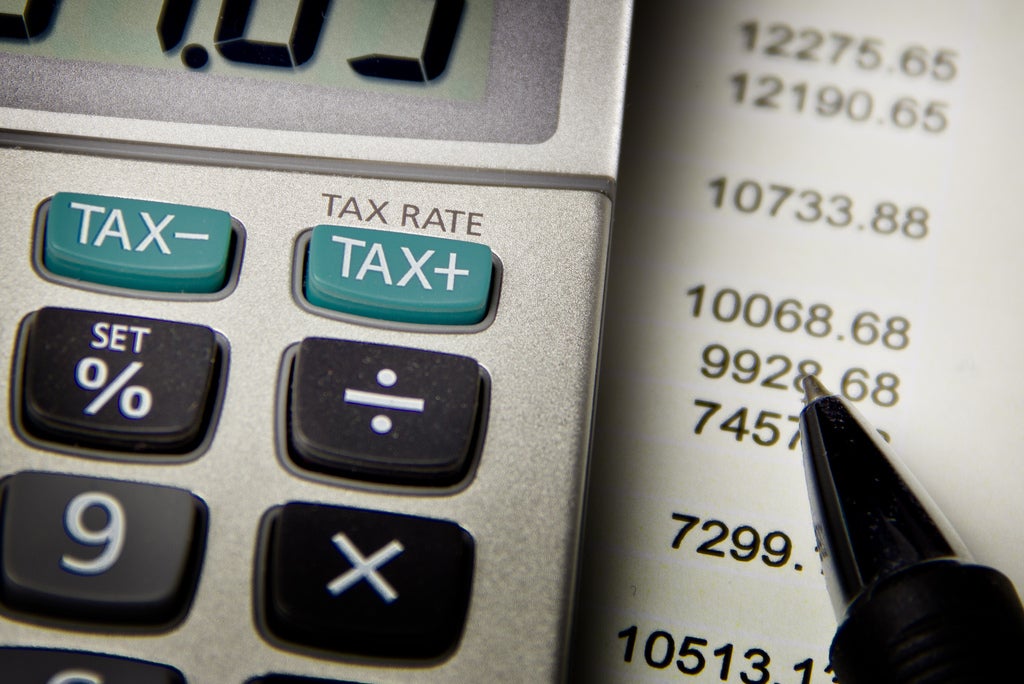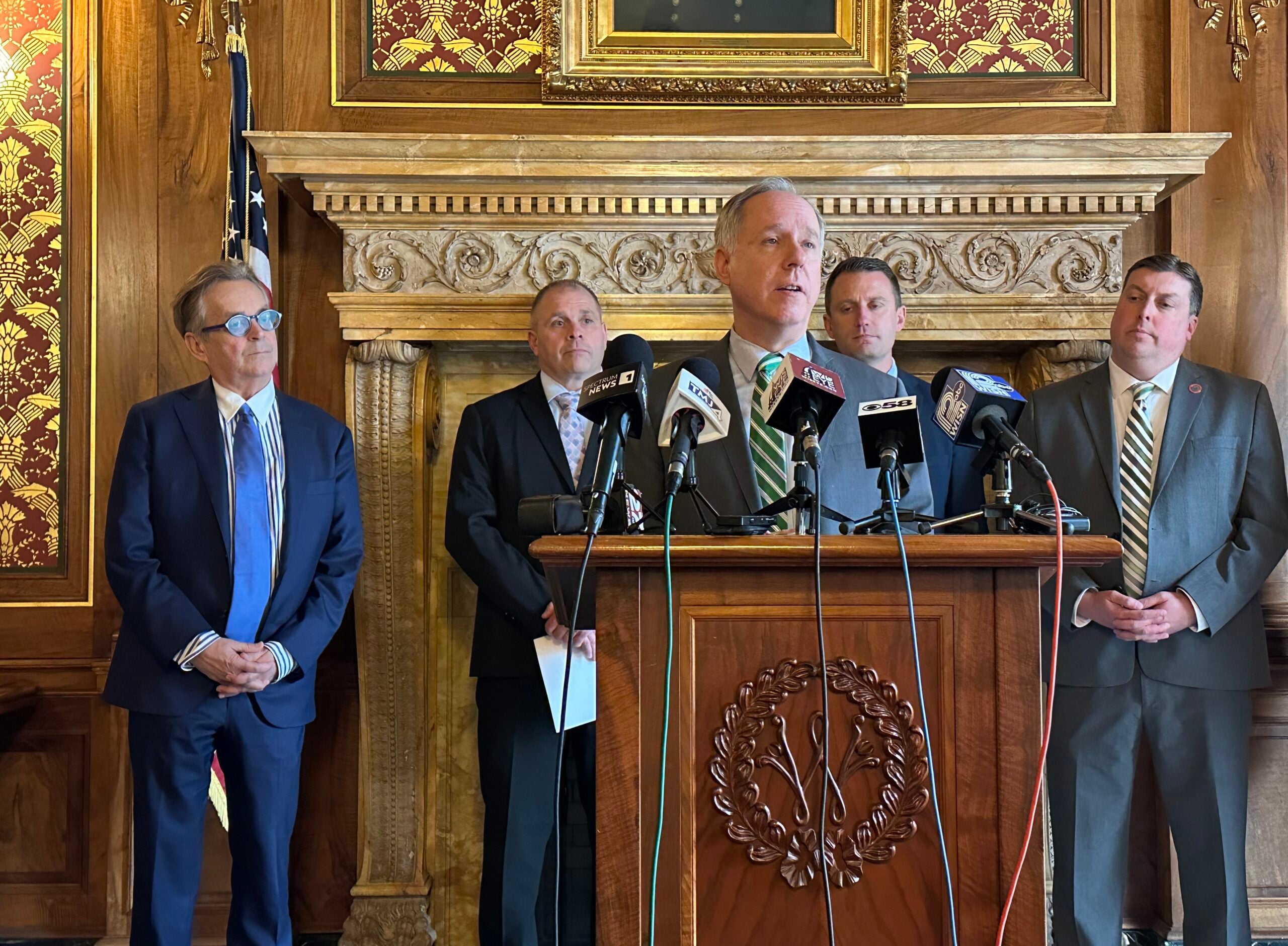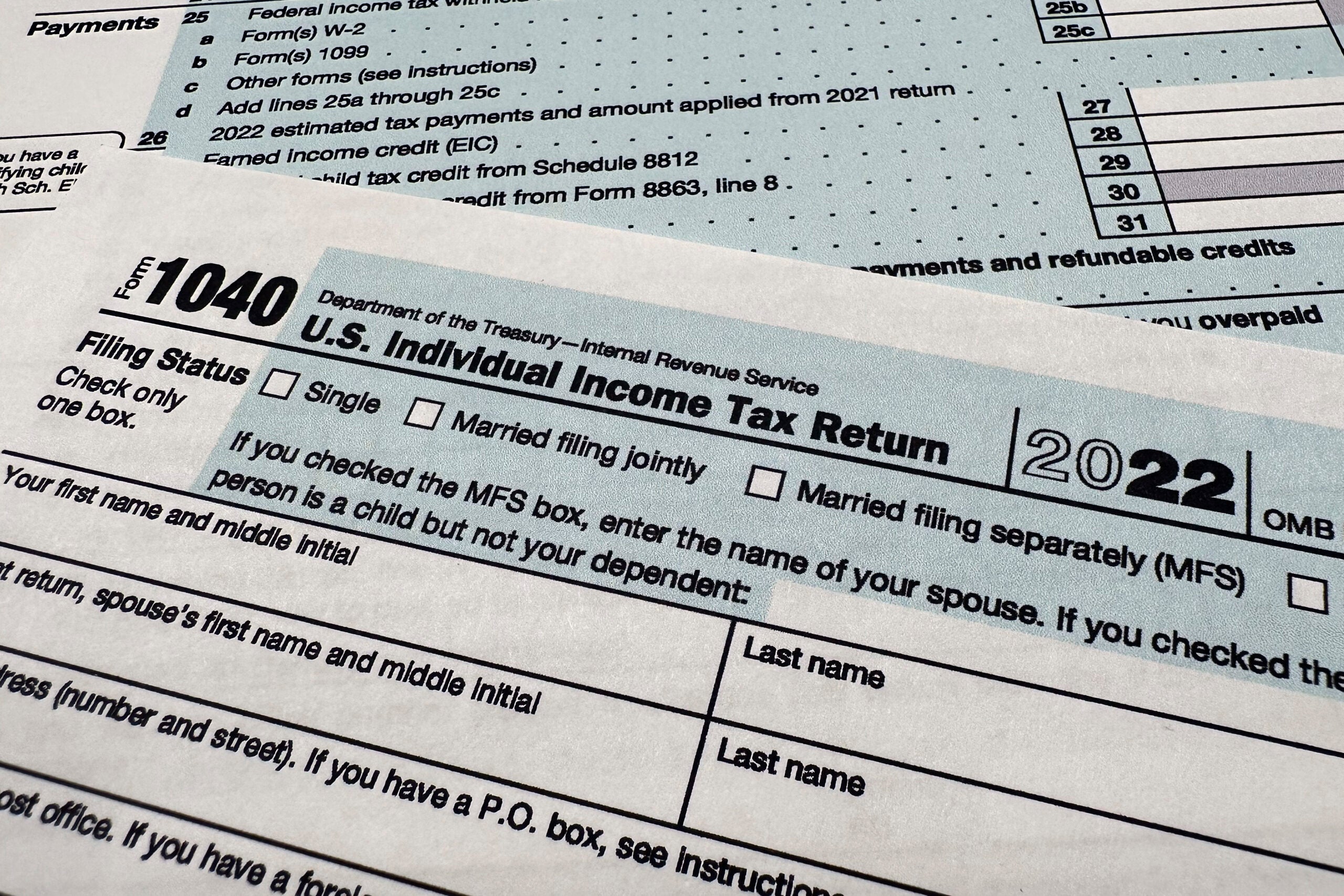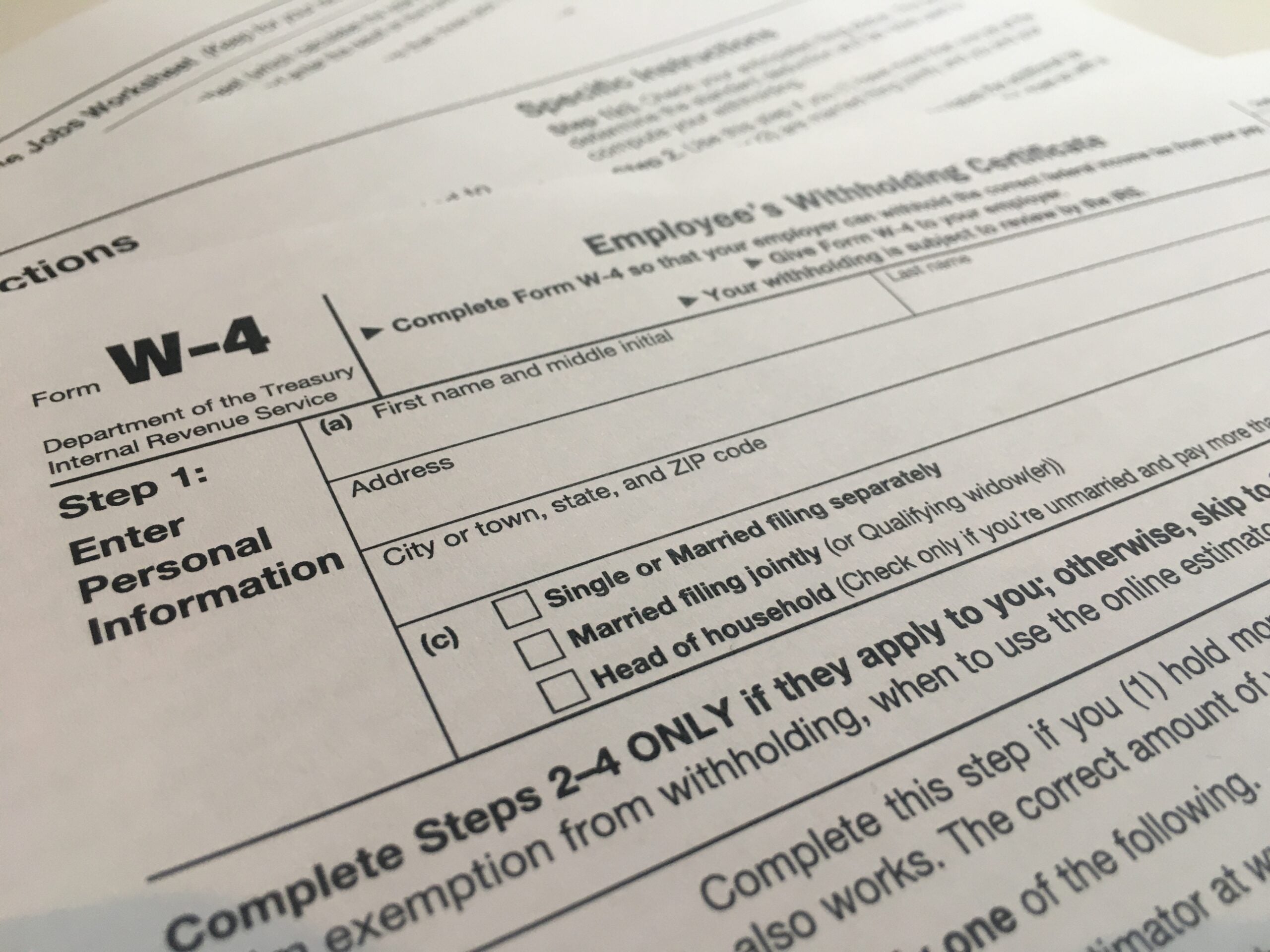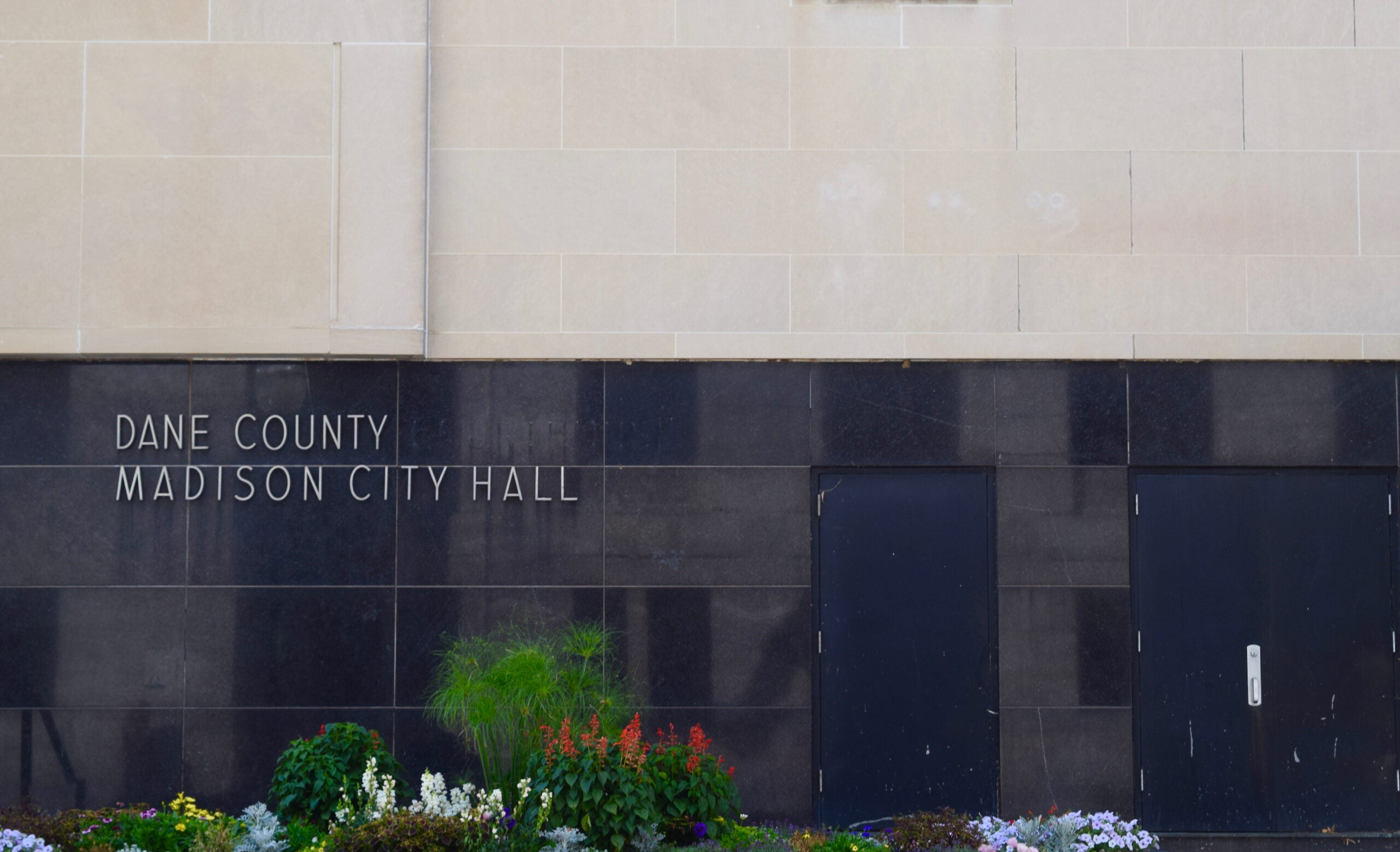The amount of income that Wisconsinites pay in taxes has been steadily declining, and is now at its lowest rate, according to a new report from the Wisconsin Policy Forum.
The nonpartisan organization measures Wisconsin’s “tax burden,” an expression that encapsulates the ratio of state and local taxes a person pays relative to their income.
In 2022, the most recent year for which U.S. Census records exist, Wisconsinites paid 9.9 percent of their income toward taxes, lower than the national average of 11.1 percent.
Stay informed on the latest news
Sign up for WPR’s email newsletter.
That marks a sizeable decrease in Wisconsinites’ tax burden, a consequence of increased income, caps on property tax increases and sizeable statewide income tax cuts, according to the Policy Forum’s communications director, Mark Sommerhauser.
“The share of our income that we pay in state and local taxes here in Wisconsin has been declining steadily over more than two decades, and … that was just a continuation of something that’s been happening for a while,” Sommerhauser said.
That trend translates to Wisconsin ranking 35th in the country for size of tax burden. That’s a dramatic change from 25 years ago, when Wisconsin ranked third in the nation.
Republicans lawmakers, who pushed repeatedly last legislative session for tax cuts, celebrated the report’s findings.
“Between 2000 and 2022 Wisconsinites benefitted from the largest decrease in tax burden in the country. The sky didn’t fall, state revenues continue to climb, and Wisconsin is in historically strong financial position,” said Senate Majority Leader Devin LeMahieu, R-Oostburg, in a statement.
“The 35th lowest tax burden in the country is great, but we can do better. Senate Republicans are committed to returning the state’s surplus to Wisconsin families by continuing to cut taxes,” he added.
One tax cut that contributed to the decrease was passed in 2021 and signed by Gov. Tony Evers. The report notes that income tax cut, which amounted to a $1 billion cut by lowering the rate for earners in the third-highest tax bracket, contributed significantly to the declining tax burden, especially in the face of inflation.
“No matter what you think about it, you can’t argue that there hasn’t been a big shift here,” said Sommerhauser.
Last session, Evers and Wisconsin Republicans, who control the state Legislature, sparred repeatedly over tax cuts. Republicans passed a $3 billion tax cut that Evers vetoed most of, saying it primarily benefited wealthy Wisconsinites at the expense of the middle class.
He has called for spending more of the state’s surplus, while Republicans argue it should be given back to taxpayers in the form of cuts.
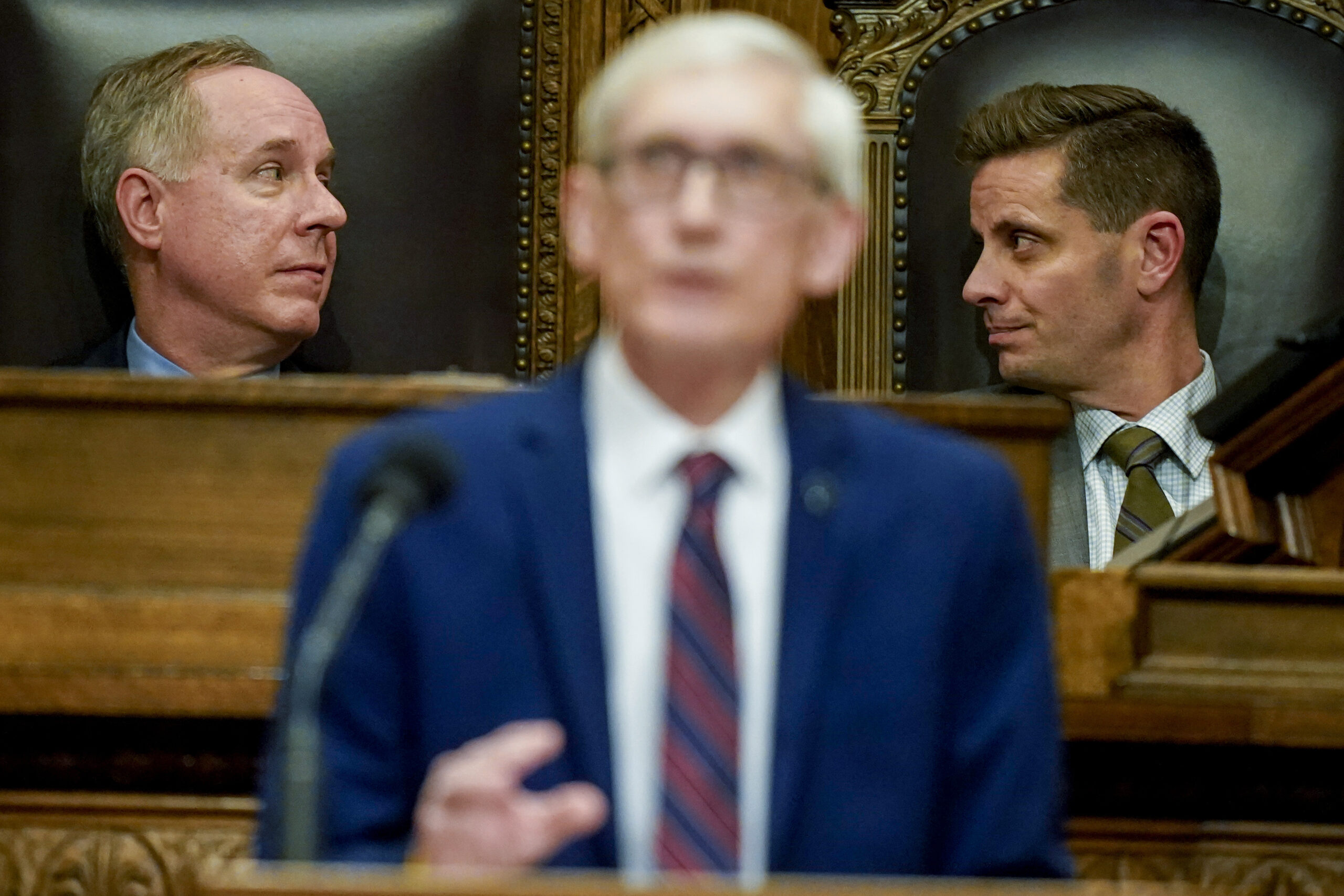
The political back-and-forth about tax revenue plays out in a finding in the Policy Forum report that state K-12 spending has also decreased. School spending as a percent of personal income has dropped from 5.2 percent in 2000 to 3.8 percent in 2022. That’s translated to Wisconsin going from eighth in education spending to 31st in that same time period.
Lawmakers have also sparred over education funding, also largely on party lines, as many local communities have turned to local property tax referendums to cover declining state funding. Those may slow the decline in Wisconsinites’ tax burdens, the report finds.
“Many lawmakers want to keep lowering taxes in Wisconsin while Evers and many referendum voters have sought to boost K-12 spending. Resolving that tension will be one of the largest challenges ahead in the 2025-27 state budget,” the report finds.
Wisconsin Public Radio, © Copyright 2025, Board of Regents of the University of Wisconsin System and Wisconsin Educational Communications Board.
